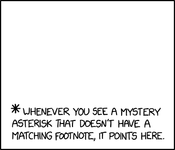Elixir
Made in America
I don’t even know how to comment on this.
Someone who knows more than I (almost anyone) please comment!
The federal Lawrence Livermore National Laboratory in California, which uses a process called inertial confinement fusion that involves bombarding a tiny pellet of hydrogen plasma with the world’s biggest laser, had achieved net energy gain in a fusion experiment in the past two weeks, the people said.
Someone who knows more than I (almost anyone) please comment!


